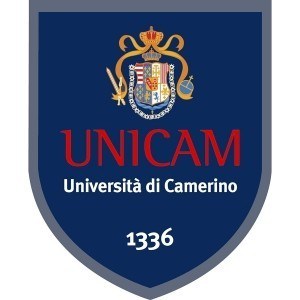Photos of university / #imperialcollege
Program Description:
The Biosystematics undergraduate degree at Imperial College London is a comprehensive program designed to provide students with an in-depth understanding of biological diversity, classification, and evolutionary relationships among organisms. This program combines rigorous scientific training with practical laboratory and fieldwork experiences, enabling students to develop strong analytical and research skills essential for careers in ecology, taxonomy, conservation, and biodiversity management. Throughout the course, students explore the fundamental principles of systematics, phylogenetics, and evolutionary biology, while gaining proficiency in modern techniques such as genetic analysis, bioinformatics, and morphological assessment. The curriculum is carefully structured to offer a balance between theoretical knowledge and applied skills, ensuring graduates are well-equipped for both further academic research and professional roles in environmental consultancy, public health, conservation organizations, and academia. Students have the opportunity to engage in hands-on projects, field expeditions, and research collaborations with leading experts in the field. Imperial College London’s state-of-the-art facilities and extensive network of industry partners provide an excellent environment for innovative learning and professional development. Emphasizing sustainability and environmental responsibility, the program prepares students to address global challenges related to biodiversity loss, habitat destruction, and climate change. Graduates of the Biosystematics program leave with a strong scientific foundation, critical thinking abilities, and the practical experience needed to contribute effectively to the understanding and preservation of biological diversity worldwide.
This is a one-year research-based postgraduate course, run jointly by Imperial College London and the Natural History Museum in South Kensington, a leading institute in systematics research, where the students will be based. It provides students with a broad perspective of taxonomy and systematics, together with relevant practical experience. The course is aimed at students who wish to broaden their knowledge in this area before undertaking a PhD or embarking on a career in systematics research. Applicants should have a first class or upper second class Honours degree in a biological or environmental subject.
The course comprises three 15-week research projects, providing training through research in a range of scientific methods and techniques. Students will participate as research group members in group discussions, specialist subject seminars, work-in-progress lab meetings and journal clubs, and will attend lectures on key topics in systematics.
Training includes theory and philosophy of phylogenetic reconstruction, morphological character analysis, microscopy and image analysis, molecular systematics, taxonomic revisions, phylogenetics computing, statistical approaches to biodiversity, conservation genetics, and specimen handling and collection management. Workshops and seminars in transferable skills are organised by the Graduate School of Life Sciences and Medicine.
At least an upper second class honours (2:1) degree in a biological or environmental subject is required, or an equivalent overseas qualification.
If your first degree is from a country other than the UK, you may find the guidelines within our Country Index helpful. Please note that these guidelines indicate the College minimum. Our requirement is usually higher.
Funding options for the Biosystematics program at Imperial College London include a range of scholarships, grants, and financial aid opportunities aimed at supporting both domestic and international students. Prospective students are encouraged to explore scholarships offered directly by Imperial College, such as the Imperial College PhD Scholarships, which provide full or partial funding based on academic merit and research potential. Additionally, there are external funding sources, including government-sponsored programs like UK Research and Innovation (UKRI) grants, which support postgraduate research across various disciplines, including biosciences. Many students also secure funding through research assistantships or collaborative projects with industry partners, which often include stipends and tuition fee waivers. International students may be eligible for specific scholarships such as the Imperial College International Scholarships, which aim to promote diversity and attract talented researchers from around the world. Some students finance their studies through student loans, including UK government loans for eligible students, and private loans from banks or financial institutions. The university also offers bursaries and fee reduction schemes for students demonstrating exceptional academic achievements or financial need. Furthermore, students are encouraged to seek external funding from organizations related to biological sciences, environmental research, and biodiversity conservation, many of which provide grants for postgraduate study. It is essential for prospective students to check the specific funding deadlines and eligibility criteria and to prepare strong applications and supporting documents. The university’s financial aid office provides comprehensive guidance on available funding sources, application procedures, and how to maximize the chances of securing financial support. Overall, funding for the Biosystematics program is competitive but extensive, with numerous opportunities designed to make postgraduate study accessible to a wide range of talented individuals dedicated to advancing knowledge in biological systematics and related fields.
Tuition fees (2015–2016):
- Home/EU Full-time — £9,200
- Overseas Full-time — £18,800










